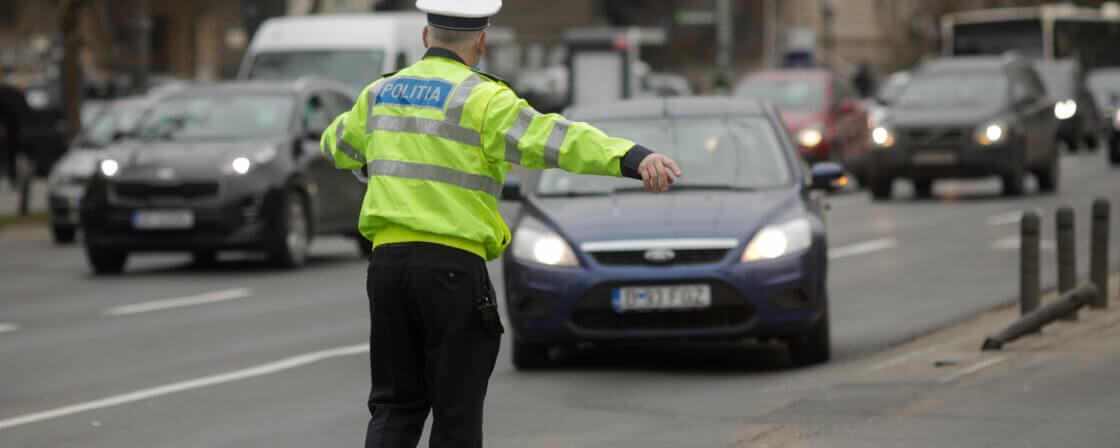Why are the police doing this?
Preventing drivers from driving is not an instrument of bullying in itself. Police only use it in situations where the driver is a threat to traffic safety, property, or even human life. Imagine, for example, that someone gets behind the wheel under the influence of alcohol. Such a driver is a potential threat to everyone, so stopping him or her from driving again may prevent a tragedy.
Another situation could be, for example, when a driver without a licence appears on the road. This is not a formality, as the unlicensed person may not have sufficient knowledge or skills and is a danger to other road users. Or a vehicle that has a serious technical fault, such as brakes that are not working. Here, too, the police must intervene.
The purpose of the law is therefore to protect the public interest in the form of road safety. Prevention of driving is an interference with the freedom of the individual and is therefore only used under strictly defined conditions. It is similar to a doctor forbidding you to play sport until you have recovered.
Are you solving a similar problem?
Need legal help?
If you find yourself in a situation where the police have prevented you from driving, do not hesitate to contact our legal advice service. We will quickly assess whether the police action was lawful and help you with your appeal and any claim for compensation.
I need help
- When you order, you know what you will get and how much it will cost.
- We handle everything online or in person at one of our 6 offices.
- We handle 8 out of 10 requests within 2 working days.
- We have specialists for every field of law.
What does the Road Traffic Act say?
The basic rules can be found in Section 118a of the Road Traffic Act. This section is a kind of “rule of the road” for situations where a police officer simply says to the driver, “You are finished here and now.”
The law distinguishes several headings: driver-related reasons, vehicle-related reasons and special arrangements for driving schools.
Driver-related reasons
A police officer can prevent driving if the driver is suspected of a very serious offence or crime. For example, he or she has been driving under the influence of alcohol or drugs, has refused to submit to a test, has driven away from an accident he or she was required to attend, does not have a licence or is driving while under a driving ban.
Imagine a situation where the driver refuses to breathe into the device. The police officer cannot say to himself “well, keep driving”. He has a legal duty to stop the car.
Reasons on the part of the vehicle
If the vehicle is in such a condition that it is a traffic safety hazard (e.g. obviously malfunctioning brakes), or if the car is suspected of being stolen, the police must intervene. The same applies if the driver refuses a roadworthiness test.
Driving schools
The law also remembers driving school teachers. If the instructor himself gets behind the wheel under the influence or refuses a test, the police can prevent the driving school vehicle from driving as well.
The law even goes so far as to specify who pays the costs of any towing of the vehicle – always the driver or the operator.
Boot, towing and 48 hours
If a police officer prevents you from continuing to drive, they can do so in a number of ways. The most well-known is the so-called “boot”. This is a technical device that makes it physically impossible for you to drive away. The boot is usually put on the wheel of the car and can only be removed by an authorised person.
The second option is towing. This comes into play when the car would obstruct traffic or otherwise pose a danger. For example, if a driver stops in the middle of an intersection and refuses to move, the police must tow the vehicle.
An interesting rule is the 48-hour time limit. If a vehicle is parked for refusing an inspection or suspected unauthorized use, it can stay there for a maximum of two days. It must then be released, otherwise it would be an unreasonable interference with the driver’s rights.
The police officer is also obliged to give the driver written confirmation of why he or she was prevented from driving. Without the paper, you have no evidence in your hand and you would have a hard time claiming damages if it turns out that the interference was unjustified.
Tip for article
Tip: The Police of the Czech Republic is one of the security forces of the state. It is responsible for the protection of public order, investigation of criminal offences and supervision of road traffic. But who supervises it and where do new police officers come from?
Police vs. municipal police: who can do what?
You may wonder if the municipal police can give you a boot. The answer is simple – they can’t. A municipal police officer alone does not have the power to prevent you from driving by. If he finds a reason, he must call the police.
But the driver can’t just drive away. The officer has the authority to tell him to stay put until the state police arrive. This is a practical safeguard against the driver driving off before a lawful patrol arrives.
On the other hand, the customs administration has certain powers in specific situations, for example, when checking overloaded vehicles or paying tolls. Thus, even a customs officer can effectively prevent driving if proceeding would be against the law.
This distinction is important. When the municipal police stop you and start talking about preventing you from driving, you should know that they do not have that authority themselves.
What should you do as a driver?
If a police officer stops you from driving, you have several options for dealing with the situation. First of all, try to keep your temper in check and don’t argue on the spot. The officer is acting under the law, and even if he is wrong, shouting won’t help you.
How to proceed? Always ask for a written confirmation stating the reason. If the reason is the driver’s condition (e.g. alcohol), another competent driver can take over the vehicle. If it is the vehicle (technical fault), you must first rectify the fault. If you do not agree, you can then contact the competent authority or claim compensation.
How it looks in reality
Imagine a few model situations. The first example might be a drunk driver: a police officer stops the vehicle and the driver’s breath test shows 1.2‰ of alcohol. The driving stops, the car remains stationary. If a sober driver with a licence is available, he can continue.
Then there’s a technical fault: The van has a cracked frame and is in danger of falling apart while driving. The police prevent the vehicle from moving and order a tow. The operator pays all costs.
Next we can mention the driving instructor: the instructor has drugs in his blood. The police forbid him to continue training, the vehicle is stationary. And finally, for example, the city police: the officer finds that the driver is under the influence of alcohol. He cannot stop him from driving, but asks him to stay put and calls the police. So you see, the rules are not theory divorced from practice. They are encountered by police officers and drivers every day.
Still, impeding driving is a serious interference with a driver’s rights, and the law allows it only in well-defined cases. For drivers, this leads to several recommendations:
- Always have your documents with you and be prepared to produce them.
- Keep your vehicle in roadworthy condition.
- If a police officer stops you from driving, ask for confirmation and keep calm.
- Take the opportunity to have another driver take over the car if possible.
- If you feel that the officer has acted unlawfully, contact a professional and deal with it through official channels.
Even the police can make mistakes. That’s what our solicitors are here to represent you and protect your rights.
Tip for article
Tip: Read about the circumstances under which you can have your licence seized, how the seizure process works and what you can expect when it is reissued.
Summary
A police officer can stop a driver from driving thanks to a legal tool that police use only in clearly defined cases – for example, if the driver is under the influence of alcohol or drugs, driving without a licence or has committed a serious offence, but also if the vehicle is unroadworthy, stolen or refuses to be checked. The officer may use a boot, towing and must always issue a written certificate, with the cost being borne by the driver or operator. The municipal police cannot prevent driving themselves, but they can ensure that the driver stays put until the police arrive. In practice, this can result in driving at the scene of an accident, at an alcohol check and in a car without brakes. The driver has the right to know the reason for the intervention, to demand written proof of it and to claim compensation in the event of misconduct.
Frequently Asked Questions
Can the city police stop me from driving?
No. She can’t. She has to call the police, but you have to stay put.
How long can the car be parked?
Maximum 48 hours in some cases (e.g. refusal of technical inspection). Otherwise, until the reasons are no longer applicable.
Who pays for the tow?
Always the driver or operator of the vehicle.
Can I drive myself if I am under the influence?
No. Only another qualified driver can take over the vehicle.
What if the officer was wrong?
You can claim damages under the Act on Liability for Damage Caused by a Decision or Improper Official Action.




